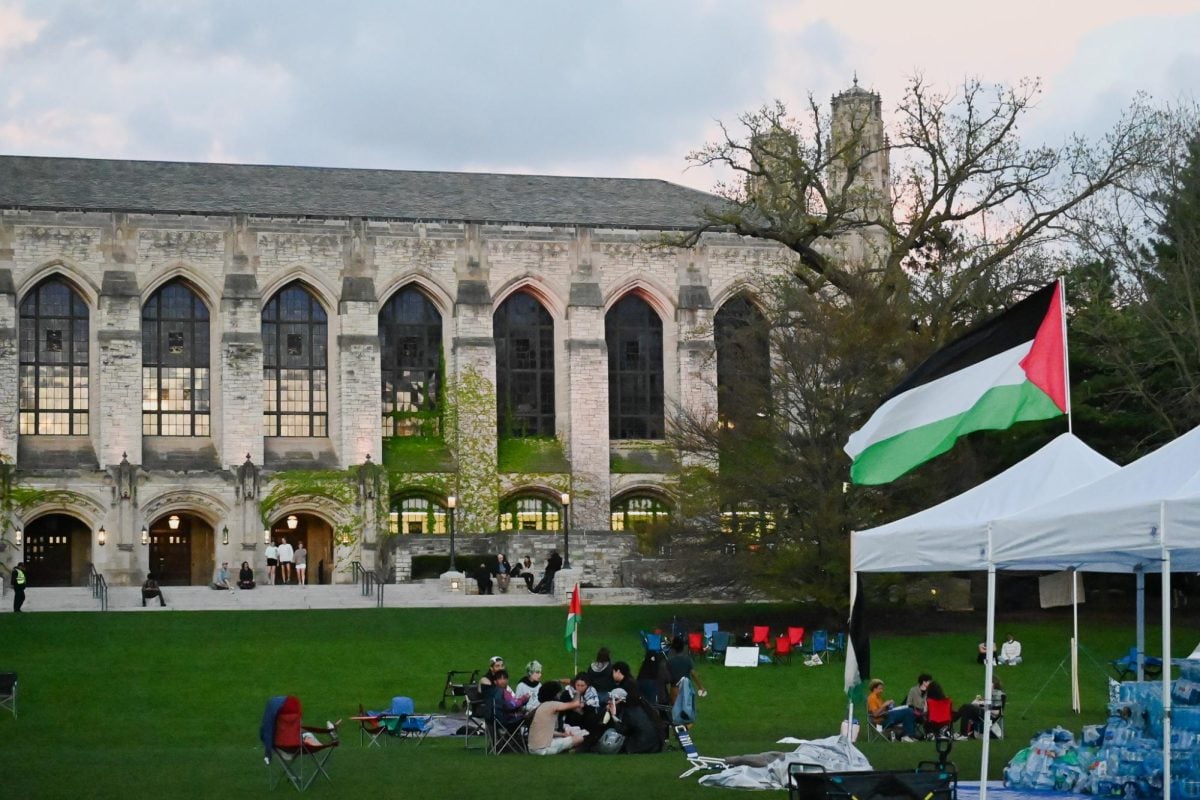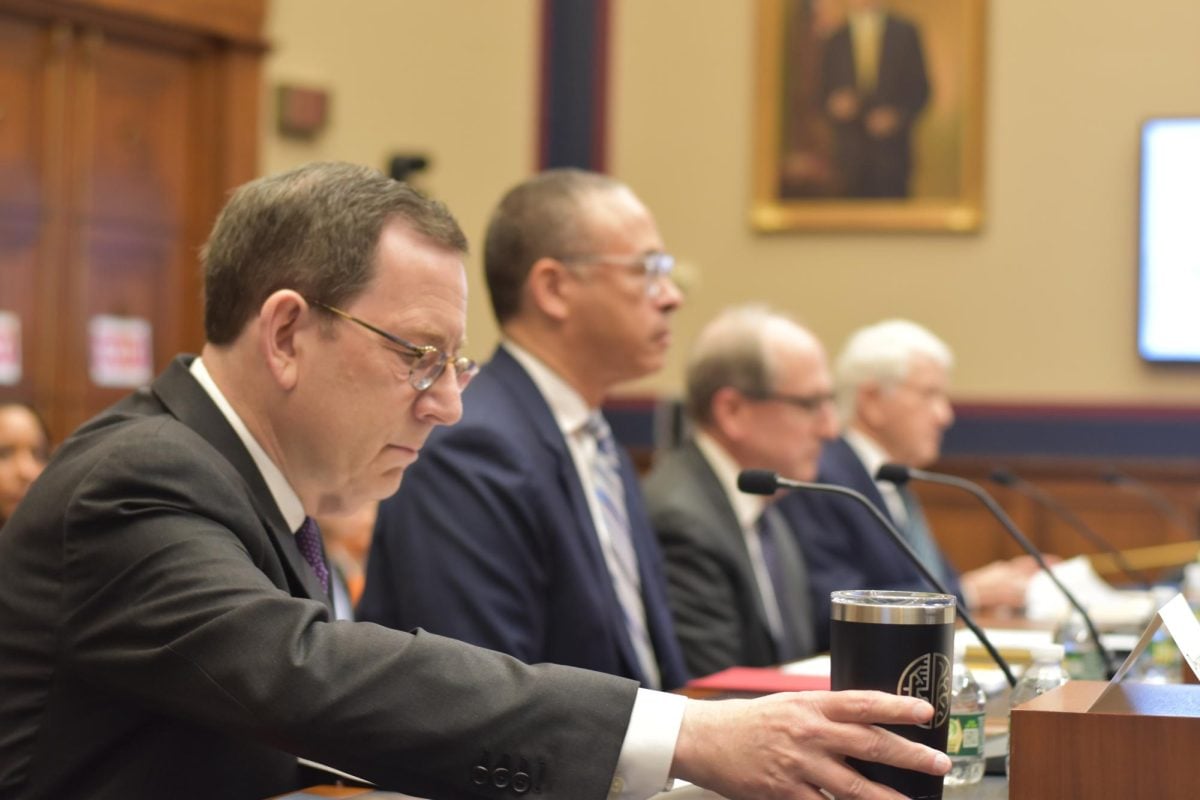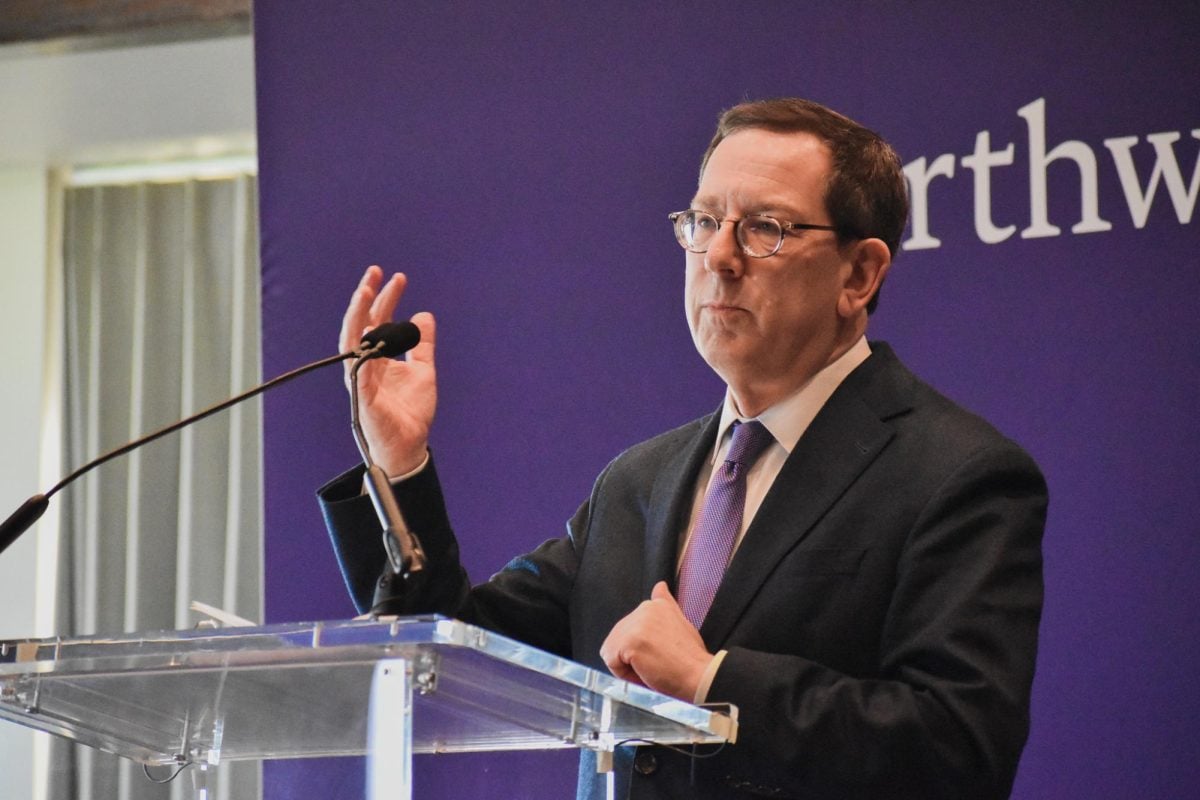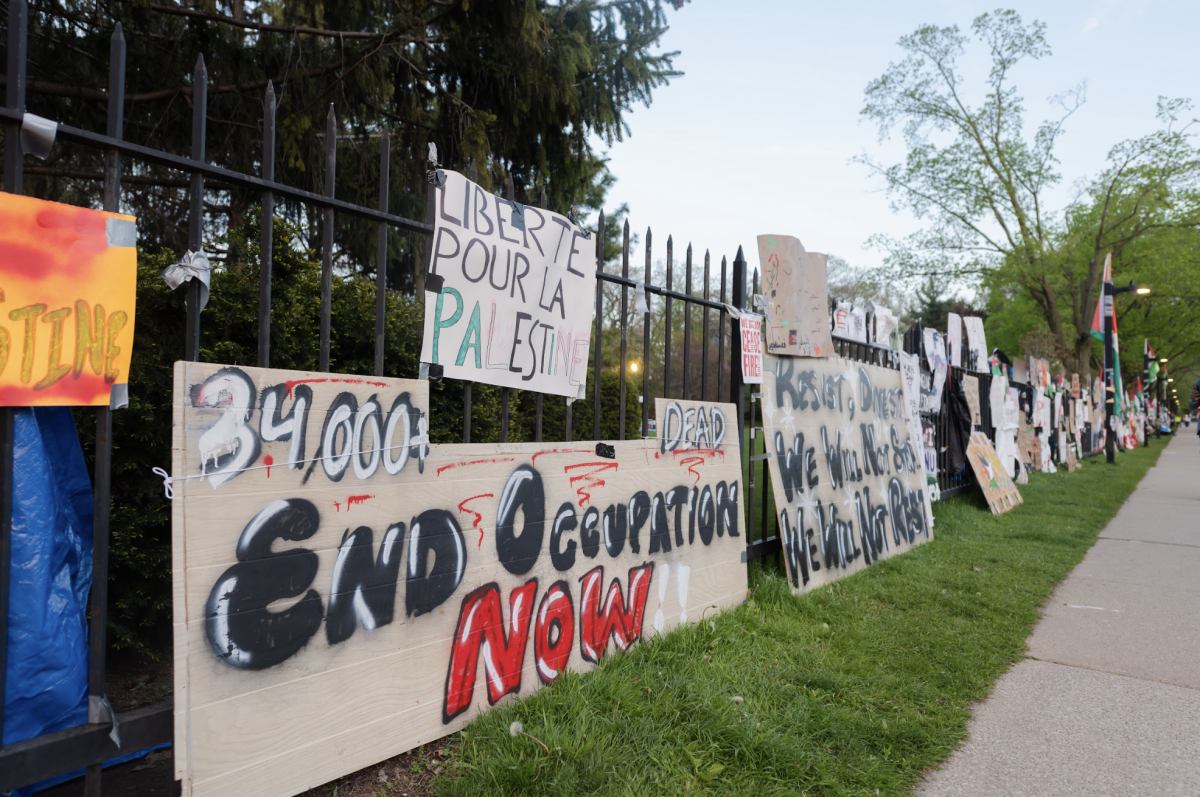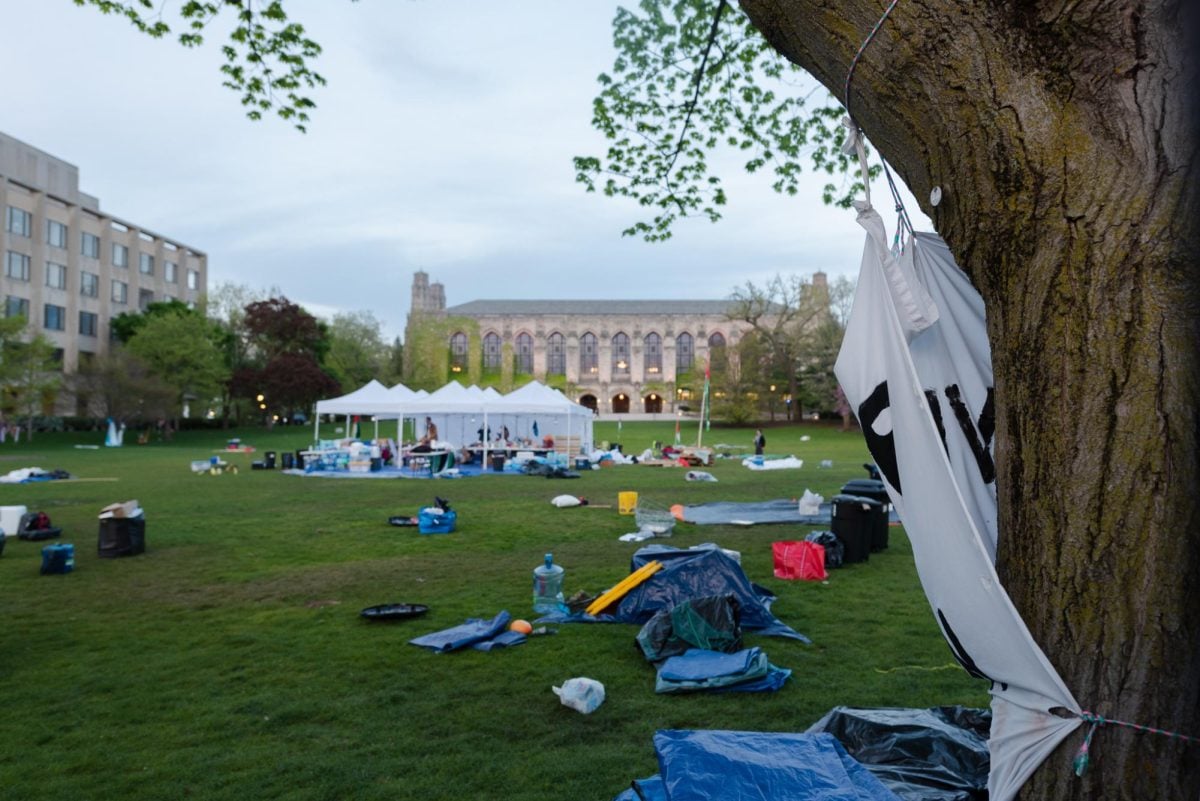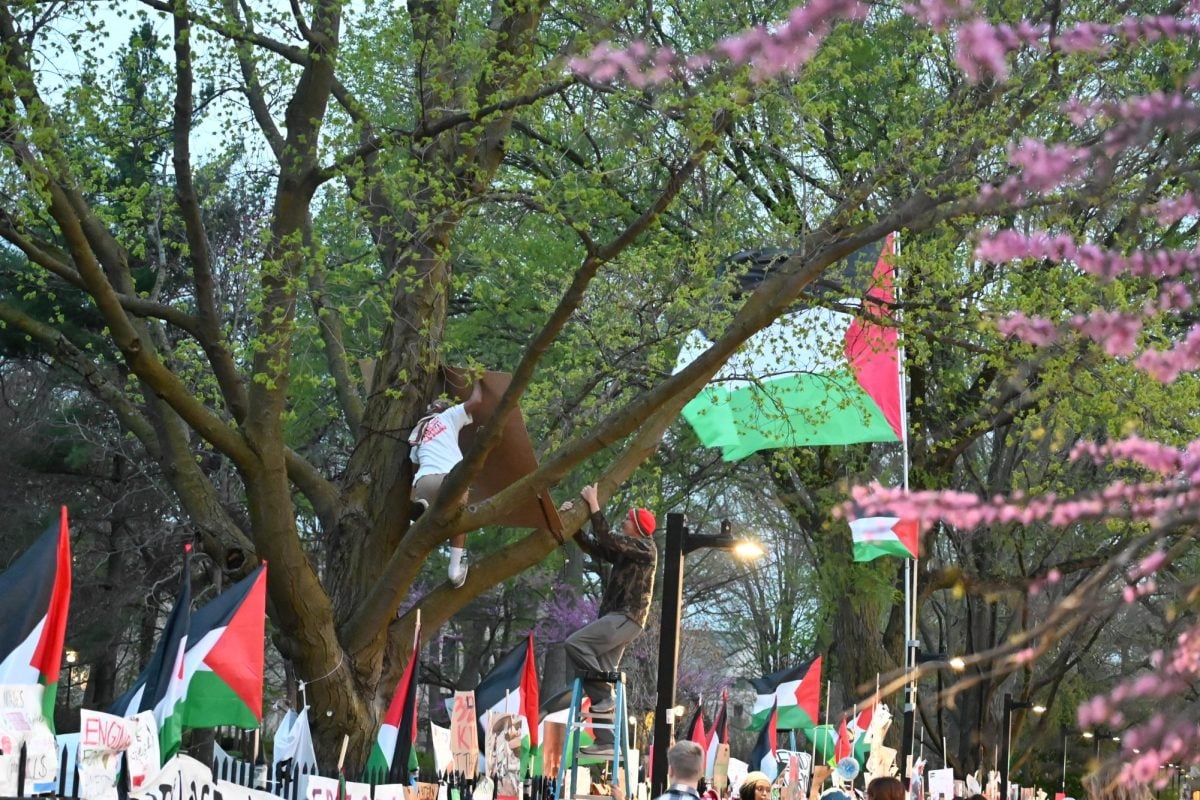When Northwestern’s pro-Palestinian encampment started on Deering Meadow Thursday morning, it followed the stead of multiple other protests that had been ongoing at universities across the country.
But the resolution to the encampment — a deal between demonstrators and NU administration announced Monday — appears to be a first at a private university, according to an Instagram post by NU’s chapter of Students for Justice in Palestine.
While demonstrations continue on Deering Meadow — permitted until June 1 under the terms of the deal — the tents are mostly gone at NU. If demonstrators do not comply with University police, NU spokesperson Hilary Hurd Anyaso said the response could face suspensions for students or disciplinary action for faculty.
“If non-affiliated individuals refuse to leave campus, Northwestern will take steps to have them removed from Deering Meadow,” she added.
Other campuses, many of which still have tents pitched, have seen rising tensions and police action this week whilst NU protesters and administration have deescalated the situation with no arrests.
In exchange for the demonstrators taking down all tents except one, the University promised to provide pathways for students to engage with the Investment Committee of the Board of Trustees, including reestablishing an Advisory Committee on Investment Responsibility in the fall.
The committee could consider divestment proposals from University members. The University also promised to cover the cost of attendance for five Palestinian undergraduate students and committed to providing an “immediate temporary space for MENA/Muslim students,” with a permanent space in development.
Most notably, the University agreed to disclose to “internal stakeholders” its investments through its endowment funds. The concession by the University comes after years of demands from activists across multiple different student organizations for disclosure.
Hurd Anyaso told The Daily that “Internal stakeholders” includes current students, faculty, staff and trustees.” She also said the ACIR “will provide a forum for ethical and social issues that may be raised by members of the Northwestern University community in connection with the management of the University’s endowment.”
The University has said students and faculty who break the agreement will face consequences such as suspension and disciplinary action, and protesters have promised to hold the administration accountable for its end of the bargain.
NU appears to be one of the first schools to have found an agreement with demonstrators. Other schools have reached agreements since NU did, still have encampments ongoing or have ended demonstrations through force.
At Columbia University, where student activists sparked nationwide solidarity protests and encampments, protests continued this week after negotiations between demonstrators and the university failed. The Columbia administration announced Monday after failing to come to an agreement with protesters that it would begin having dialogues with organizers to find solutions to the activists’ critiques.
Columbia said it offered to disclose to students the university’s direct investment holdings, make investments in Gaza’s health and education infrastructure and expedite the timeline for proposals to the Advisory Committee for Socially Responsible Investing, which considers any divestment proposal.
Columbia protesters rejected the deal. They said the agreement didn’t address the university’s indirect investments, outline a path to amnesty for already-disciplined students or provide a strong-enough path toward divestment.
After the deal’s rejection, Columbia gave protesters a deadline of 2 p.m. on Monday to disperse from the encampment or face suspension. However, many protesters stayed, and have taken to occupying a campus building, Hamilton Hall. The building was also occupied in 1968 when anti-Vietnam War protesters entered its doors.
In response, the university closed several buildings on campus and threatened students who are occupying Hamilton Hall with expulsion.
On the other end of Manhattan, negotiations between New York University administration and demonstrators have reached a “standstill,” according to NYU’s Palestine Solidarity Coalition. NYU spokesperson John Beckman told the coalition the university “is moving forward with disciplinary processes.”
NYU’s encampment on the Greene Street Walkway is the second encampment on the campus, emerging after police swept demonstrators’ original encampment at the Gould Plaza and arrested 120 demonstrators.
NYU administration began negotiations with encampment organizers on Saturday, with student demands resembling those of organizers at NU and Columbia. The ‘Gaza Solidarity Encampment’ is demanding that NYU disclose financial investments in “weapons manufacturers and companies with an interest in Israeli occupation,” shut down NYU’s Tel Aviv campus, offer protections for students and faculty penalized for protesting and disclose NYU’s relationship with the NYPD.
On Monday, Beckman said in a statement that no agreement was reached with organizers. Beckman’s statement said the university gave demonstrators the option to leave the new encampment without consequences, or the university would “move forward on conduct charges.” Demonstrators refused to leave the encampment without the university’s commitment to meeting all of their demands.
However, NYU PSC told Washington Square News that Beckman’s account of the negotiations was “misleading.” NYU administration offered “disclosure and amnesty only for protestors arrested at the Gould Plaza encampment, contingent upon students leaving the space overnight,” NYU PSC said in a statement on Instagram. The group clarified that students never agreed to leave the encampment. “We will not leave until our demands are met, and nothing less,” the statement said.
At the University of Southern California, where protests have forced the cancellation of the university’s graduation ceremony, President Carol Folt met with representatives of the campus’ protesters on Monday. While she said no deal was achieved, she said the talks were happening in good faith and that both administration and protesters agreed to meet again the next day.
Brown University reached an agreement with demonstrators on Tuesday, one day after NU’s deal was struck. Their encampment, which lasted almost a week, agreed to disperse after they secured a vote next October from Brown’s governing body on whether to divest from companies with ties to Israel.
However, protesters can still face disciplinary consequences for their actions in the encampment.
There are also risks that come with achieving a deal. Some believe the NU administration has legitimized protesters who broke the University’s demonstration policy, which was amended Thursday morning. Others have criticized NU activists for accepting an agreement that lacks a commitment to divestment from Israel by the University.
Many elements of the deal between NU administrators and protesters resemble those other universities are offering demonstrators, including disclosure of investments and pipelines to review proposals for divestment. While NU activists accepted those terms, students at other universities are attempting to win more from their administrations.
Ultimately, the NU Divestment Coalition called the agreement a “first step,” with a hope that it “serves as the floor, not the ceiling.”
Email: lilyogburn2026@u.northwestern.edu
X: @LilyOgburn
Email: davisgiangiulio2025@u.northwestern.edu
Related Stories:
— BREAKING: Administrators, student demonstrators reach agreement to end encampment on Deering Meadow

